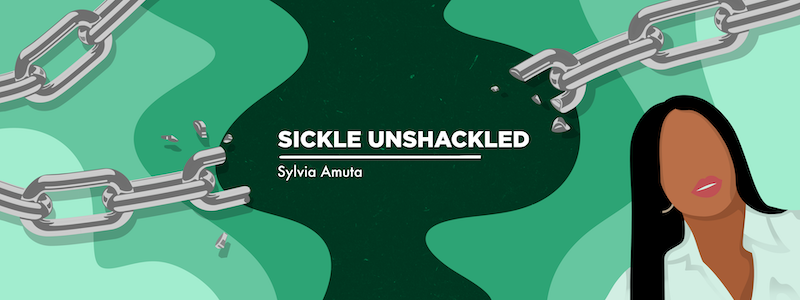How a response to bullying at school brought about positive growth
While kids can be cruel, they can also be taught to practice empathy

Being a caregiver for my cherished little cousin, who’s battling the physical and emotional challenges of sickle cell, is an enormous responsibility, both rewarding and sometimes completely overwhelming. Seeing her endure not only the difficulties of her illness, but also the callous cruelty of bullying at school is even more difficult. It’s enough to render any caregiver completely powerless.
Here’s an occasion when I witnessed firsthand the profound impact bullying can have on a child’s well-being.
Some time ago, my once-confident and extroverted cousin began to withdraw and become insecure. As her caregiver, I was concerned because I sensed something was off with her, but she refused to say anything about it. I thus overlooked it — until one dreadful Monday afternoon, when our world was slightly altered by a disturbing event.
Ada got home from school that day, her eyes red from crying, and I could tell immediately that something horrible had happened. I cradled her fragile form and urged her to reveal what had transpired. With a trembling voice, she did, recounting the distress that had unfurled during recess. Ada’s classmates, motivated by thoughtless cruelty, had singled her out because of her sickle cell disease.
As she entered the playground that day, she said she was greeted by a chorus of murmurs and accusatory gestures. She sought refuge on a nearby bench, as she felt very uncomfortable. Unfortunately, her tormentors pursued her relentlessly, taunting her and using derogatory language. Ada said they mocked her for having frequent sick breaks, struggling with physical activities, and bearing the physical differences imposed by her condition.
At that moment, my heart was filled with rage, frustration, and an unwavering resolve to protect Ada from this suffering. I was determined that this injustice could not continue unchecked.
Ada and I sat down, took deep breaths to steady ourselves, and devised a strategy to confront this conflict head-on.
I contacted her classroom teacher and school administrators, who invited me to a meeting to discuss the incident. Importantly, my strategy aimed to educate rather than assign blame. During the meeting, I discussed the complexities of sickle cell disease, its formidable challenges, and the profound impact Ada’s bullying had made on her health.
Surprisingly to me, the school administration was receptive, expressing regret for the students’ conduct. They committed to addressing the issue within the school community, with parental participation. The school later organized an outstanding health presentation. Its purpose was to educate students about a variety of health conditions, with an emphasis on sickle cell disease. The session aimed to foster comprehension, empathy, and acceptance in the souls of these young minds.
Reflecting on that moment fills me with gratitude, as this incident was what prompted me for the first time to seek out sickle cell support groups, where people share their experiences of living with the condition. As a result, I came across an outstanding initiative by a sickle cell foundation, for which I promptly volunteered. In addition, as I’m a healthcare professional, I participated in public initiatives to raise awareness about sickle cell.
These activities became a source of profound satisfaction and personal development for me. I participated in the establishment of support groups within schools and churches, fostering safe spaces where people could share their experiences, trade coping strategies, and create a sense of community. Occasionally, I’d take Ada with me to the community center, where she’d get to do meaningful work; it was always a highlight of her week. Hearing the experiences of others and lending a hand boosted her confidence.
In the weeks that followed that incident, I witnessed a remarkable transformation. Now that they were aware of the consequences of their actions, Ada’s classmates began including her in activities and exhibited more compassion. What began as a tragic event evolved into a chance for personal growth. Today, Ada is bolstered by unyielding resilience, fearlessly embracing her identity and unashamed to speak out against bullying.
This harrowing experience taught us that through proactive measures, education, and the cultivation of empathy, we have the ability to effect positive change. It highlighted the importance of a strong support system, both within the school and at home, to uplift and empower children confronting comparable challenges. Together, we can forge a future where every child, irrespective of their health condition, is celebrated and cherished.
Note: Sickle Cell Disease News is strictly a news and information website about the disease. It does not provide medical advice, diagnosis, or treatment. This content is not intended to be a substitute for professional medical advice, diagnosis, or treatment. Always seek the advice of your physician or other qualified health provider with any questions you may have regarding a medical condition. Never disregard professional medical advice or delay in seeking it because of something you have read on this website. The opinions expressed in this column are not those of Sickle Cell Disease News or its parent company, Bionews, and are intended to spark discussion about issues pertaining to sickle cell disease.








Leave a comment
Fill in the required fields to post. Your email address will not be published.